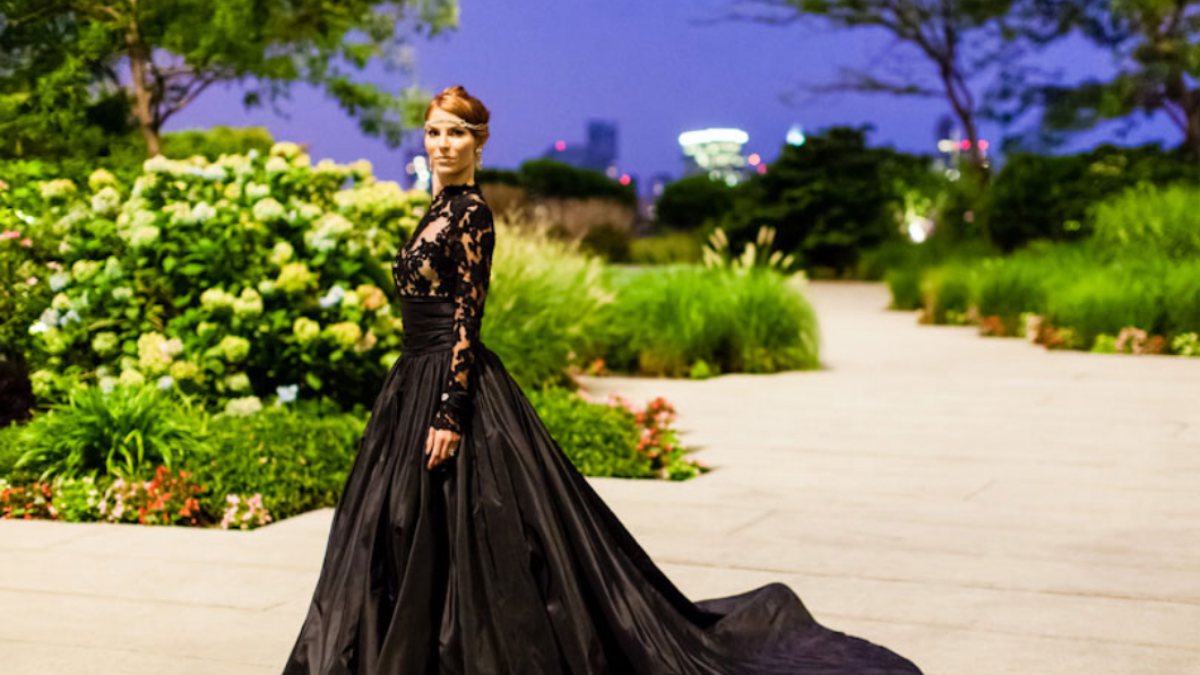Introduction:
Weddings are one of the most important events in one’s life, and everyone wants to make it memorable. While traditional white wedding dresses have been the norm for centuries, modern brides are increasingly opting for more unconventional colors like black. In this article, we will explore the world of black wedding dresses and their significance in various cultures.
History of Black Wedding Dresses:
Black wedding dresses have a rich history, dating back to the 1800s when Queen Victoria wore a black dress to her wedding to Prince Albert. At the time, black was a fashionable color for wedding dresses, and it was seen as a symbol of wealth and sophistication. However, as white became the norm for wedding dresses, black fell out of favor and became associated with mourning and grief. It wasn’t until the 21st century that black wedding dresses gained popularity once again.
Modern Black Wedding Dresses:
Today, black wedding dresses are a popular choice for non-traditional brides who want to make a statement on their wedding day. Black dresses can be elegant, sophisticated, and bold, and they are perfect for those who want to break free from tradition and embrace their individuality. Black wedding dresses are especially popular among gothic brides, who are drawn to the dark, romantic aesthetic of the gothic subculture. Read More
Designing Black Wedding Dresses:
Designing a black wedding dress requires careful consideration of color and fabric choices. Black is a strong, bold color that can easily overpower other colors if not balanced correctly. It’s important to choose fabrics that complement the black, such as lace or tulle, which can add depth and texture to the dress. Additionally, accents like beading or embroidery can be used to add glamour and sophistication to the dress.
Styles of Black Wedding Dresses:
Black wedding dresses can be designed in many ways, from full-skirted ballgowns to sleek, fitted styles. Gothic brides may opt for dresses made of black lace or velvet, while modern brides may prefer dresses with clean lines and minimal embellishments. Black wedding dresses can also incorporate other colors like white or red, which can add a touch of contrast and interest to the ensemble.
Accessories for Black Wedding Dresses:
Accessories are an important part of any wedding dress, and they can be used to tie together the overall look of the bride. For black wedding dresses, accessories should be chosen with care to ensure that they complement the dress without overpowering it. Simple, elegant jewelry like diamond stud earrings or a pearl necklace can add a touch of glamour to the outfit, while a black or white veil can complete the look.
Online shop now online shopping
Wearing a Black Wedding Dress:
Wearing a black wedding dress requires confidence and a willingness to break free from tradition. Black dresses can be seen as a bold statement, and they may not be well-received by more conservative family members or guests. However, for brides who want to embrace their individuality and make a statement on their wedding day, black dresses can be a powerful choice. Also Read
Cultural Significance of Black Wedding Dresses:
In some cultures, black is associated with mourning and grief, and wearing a black wedding dress may be seen as inappropriate or disrespectful. However, in other cultures, black is seen as a symbol of strength and power, and wearing a black dress may be a way for brides to showcase their independence and confidence. Ultimately, the cultural significance of black wedding dresses depends on the individual’s cultural background and personal beliefs.
Learn about picuki and moviezwap
Conclusion:
Black wedding dresses are a bold, unconventional choice that can make a bride stand out on her wedding day. Whether you opt for a gothic-inspired lace gown or a sleek, modern design, a black wedding dress can be a powerful statement of individuality and confidence. By carefully choosing fabrics, accessories, and styles, brides can create a unique and memorable look that reflects their personal style and taste.




